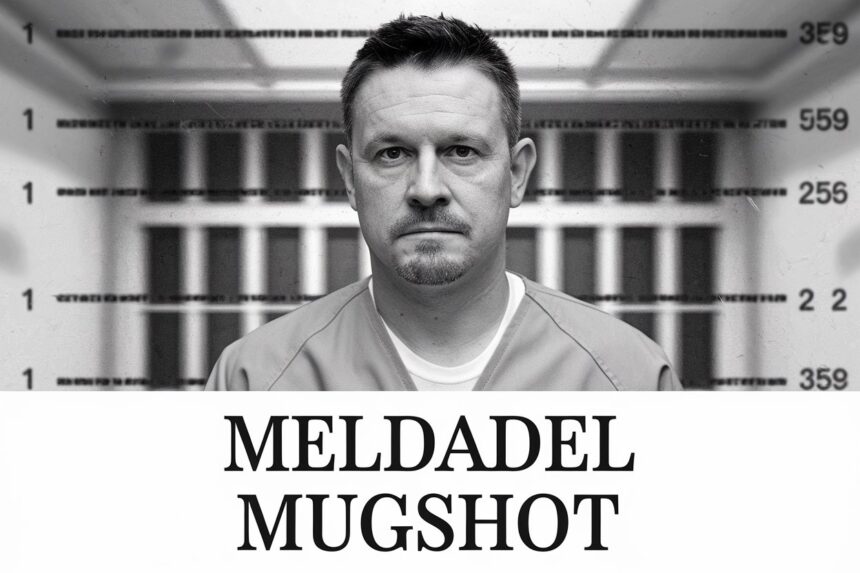In today’s digital age, where moments can turn into movements overnight, the Meldadel Mugshot stands out as a fascinating example. It represents how quickly social media can shape narratives and influence public opinion. But what exactly is this phenomenon, and why has it captured the attention of both social media users and legal professionals alike?
Introduction
The Meldadel Mugshot first emerged as a seemingly ordinary legal photo. Yet, within hours, it had spread like wildfire across social platforms. This rapid dissemination highlighted the power and reach of social media in our daily lives. For those who engage regularly with these platforms, understanding such occurrences is essential to grasp the broader implications of online interactions. Throughout this post, we will explore the origins of the Meldadel Mugshot, its impact on legal narratives, and the lessons it imparts for the future.
You may also like to read
The Meldadel Mugshot A Case Study of Viral Spread
Origins of the Meldadel Mugshot
The story of the Meldadel Mugshot began in a small town, where an arrest led to the release of a mugshot. At first glance, it was just another image intended for official records. Yet, within minutes of its release, it was shared and reshared, gaining traction at an unprecedented rate.
Social Media’s Role in Dissemination
Once the Meldadel Mugshot hit social media, it took on a life of its own. Platforms like Twitter, Facebook, and Instagram became arenas for discussion, debate, and even mockery. Memes sprouted up, and users worldwide began commenting and speculating about the incident. This phenomenon showcases how social media can amplify and distort legal narratives, turning private moments into public spectacles.
Public Opinion and the Meldadel Mugshot
With the rapid spread of the Meldadel Mugshot, public opinion formed almost instantaneously. People who had never heard of the individual or their circumstances suddenly had strong opinions. The court of public opinion often crafted this collective judgment, overshadowing the facts and demonstrating how easily viral content can shape narratives.
Social Media’s Influence on Legal Narratives
Shifting Perceptions of Legal Events
The Meldadel Mugshot incident offers a clear example of how social media can change perceptions of legal events. Traditional media outlets used to control public narratives, but now, anyone with a smartphone can contribute to or alter the story. This shift has significant implications for how legal events are understood and interpreted by the public.
Privacy Concerns with the Meldadel Mugshot
When the Meldadel Mugshot went viral, privacy concerns came to the forefront. Individuals involved in legal proceedings often expect a degree of confidentiality, yet social media can strip away that expectation in an instant. The incident raised questions about the balance between public interest and personal privacy rights.
Impact on Legal Proceedings
The influence of the Meldadel Mugshot extended beyond public perception, affecting legal proceedings themselves. Judges, lawyers, and juries are not immune to the sway of public opinion. The viral nature of such incidents can complicate legal processes, potentially impacting the fairness of outcomes.
Ethical and Legal Implications of Sharing Mugshots
Ethical Considerations in Sharing
The widespread sharing of the Meldadel Mugshot sparked ethical debates. Is it right to distribute images that may not represent the full context of a situation? The ethical responsibility of both the original poster and those who share such images is a topic of ongoing discussion.
Legal Rights of Individuals
Legally, individuals have rights when it comes to their images being shared. However, the Meldadel Mugshot highlighted the challenges in enforcing these rights once an image goes viral. Understanding these legal frameworks is crucial for both individuals and entities who share such content.
Balancing Public Interest and Individual Rights
A core issue with the Meldadel Mugshot is balancing the public’s right to know with individual privacy rights. While public safety and awareness are important, the rights of those involved in legal matters must also be protected. This balance remains a delicate and evolving challenge.
The Role of News Media in the Meldadel Mugshot Narrative
Media Responsibility in Reporting
The Meldadel Mugshot brought media responsibilities into sharp focus. News outlets must report accurately and ethically, especially when dealing with sensitive legal matters. The sensationalism that sometimes accompanies such stories can skew public perception, emphasizing the need for balanced reporting.
Public’s Right to Know vs. Privacy
The media’s role in disseminating the Meldadel Mugshot also raises questions about the public’s right to know. While transparency is vital, it must be weighed against the potential harm to individuals’ privacy. This ongoing tension is a significant consideration for journalists and media organizations.
Ethical Journalism Practices
In the wake of the Meldadel Mugshot, discussions about ethical journalism practices have gained momentum. Journalists must consider the implications of sharing sensitive content and strive to present balanced narratives that inform without sensationalizing.
The Aftermath Lessons from the Meldadel Mugshot
Broader Implications for Social Media
The Meldadel Mugshot has broader implications for social media as a whole. It serves as a reminder of the power of these platforms to shape narratives and influence public discourse. Users must be aware of the potential consequences of their online actions and the speed at which information can spread.
Legal System Adaptations
The legal system is slowly adapting to the challenges posed by incidents like the Meldadel Mugshot. Courts and lawmakers are considering new guidelines and regulations to address the impact of social media on legal processes. These changes aim to ensure fairness and justice in an increasingly digital world.
Public Discourse and Awareness
Ultimately, the Meldadel Mugshot has sparked important conversations about public discourse and awareness. It encourages individuals to think critically about the information they consume and share, fostering a more informed and thoughtful online community.
Conclusion
The Meldadel Mugshot phenomenon provides valuable insights into the intersection of social media and legal narratives. Its rapid spread and impact illustrate the power of online platforms to shape public opinion and influence legal proceedings. For social media users, legal professionals, and news readers alike, understanding these dynamics is crucial in navigating today’s digital landscape.
Moving forward, it is essential to strike a balance between the public’s right to know and individuals’ privacy rights. By fostering ethical practices in both media and social media, we can ensure that such incidents are handled responsibly and fairly. For those interested in exploring more about the Meldadel Mugshot and its implications, further resources are available to deepen understanding and promote informed discussions.
Frequently Asked Questions (FAQs)
1. What are the privacy concerns associated with the Meldadel Mugshot?
The expectation of confidentiality for individuals involved in legal proceedings drives privacy concerns, which the rapid sharing of mugshots on social media can jeopardize.
2. How does the Meldadel Mugshot impact legal proceedings?
The viral nature of the Meldadel Mugshot can influence judges, lawyers, and juries, potentially complicating legal processes and affecting the fairness of the outcomes.
3. What ethical issues arise from sharing the Meldadel Mugshot?
The ethical considerations include the responsibility of individuals to share contextually accurate images and the potential harm that can result from disseminating incomplete narratives.
4. What legal rights do individuals have regarding their mugshots being shared?
Individuals have certain legal rights concerning the sharing of their images, but enforcing these rights can be challenging once an image circulates widely on social media.
5. How can media outlets ensure ethical reporting on sensitive legal matters?
Media outlets must prioritize accurate and balanced reporting, avoiding sensationalism, to responsibly handle sensitive legal narratives like the Meldadel Mugshot.







